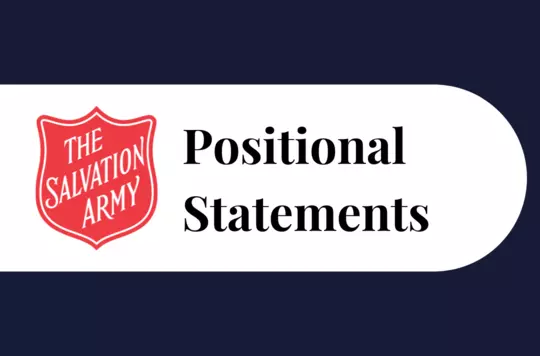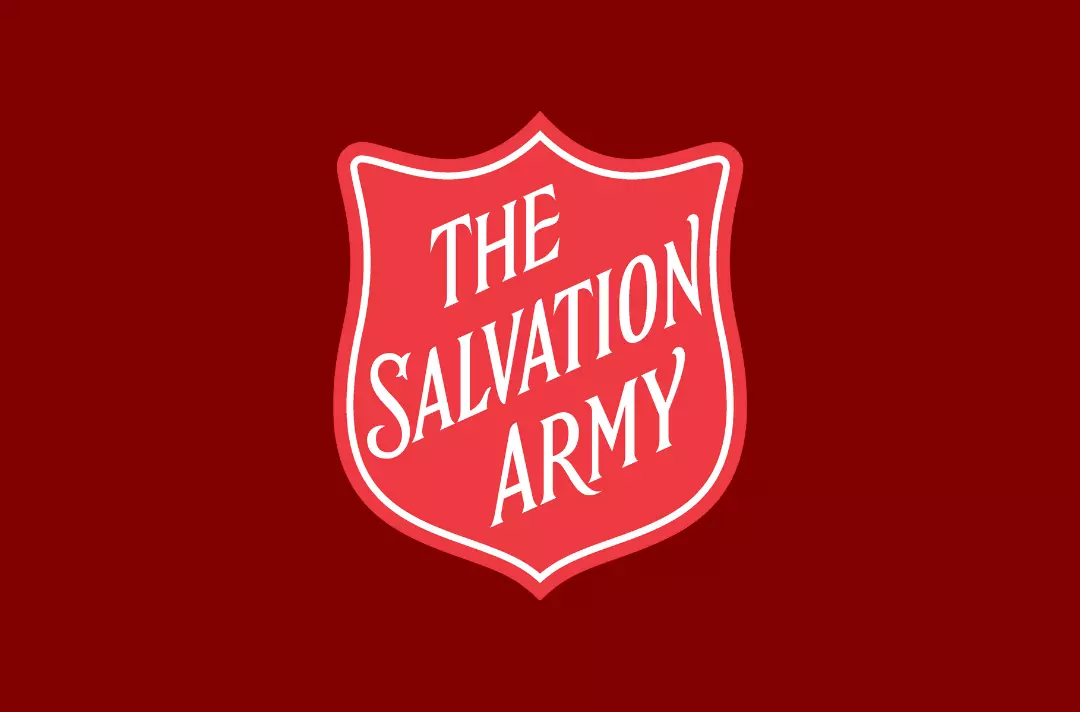International Positional Statement
Racism
This International Positional Statement is intended to provide information and guidance to members of The Salvation Army.
As the official position of The Salvation Army, officers and others representing The Salvation Army must speak consistent with the position.
It is understood, however, that individual Salvationists may hold different views on some subjects and acceptance of position is not essential to membership.
The Salvation Army also recognises that non-members may not share the same perspective and does not discriminate or condemn those who do not hold the same beliefs or exclude them from attending our church services, working for us or receiving our support.
Racism: Statement of position
Racism is the belief that races have distinctive cultural characteristics determined by hereditary factors and that this endows some races with an intrinsic superiority over others. ‘Racism’ also refers to political or social programmes built on that belief. [1] The use of the term ‘race’ itself is contested, but is generally used to refer to a distinct group sharing a common ethnicity, national origin, descent and/or skin colour. The Salvation Army denounces racism in all forms.
Racism is fundamentally incompatible with the Christian conviction that all people are made in the image of God and are equal in value. The Salvation Army believes that the world is enriched by a diversity of cultures and ethnicities.
The Salvation Army firmly believes that racism is contrary to God’s intention for humankind, and yet we recognise that the tendency for racism is present in all people and all societies. Racial discrimination can take many expressions, including tribalism [2], casteism [3] and ethnocentrism [4]. Racism is not only the result of individual attitudes, but can also be perpetuated by social structures and systems. Sometimes racism is overt and intentional, but often it is not.
While many Salvationists have acted firmly and courageously against racism, The Salvation Army acknowledges with regret, that Salvationists have sometimes shared in the sins of racism and conformed to economic, organisational and social pressures that perpetuate racism. The Salvation Army is committed to fight against racism wherever it is experienced and will speak into societies around the world wherever we encounter it.
As we pray for God’s will to be done on earth as in Heaven, The Salvation Army will work towards a world where all people are accepted, loved and valued.
This positional statement was approved by the General in October 2017.
[1] Collins English Dictionary – Complete and Unabridged, 12th Edition 2014; Oxford English Dictionaries, en.oxforddictionaries.com/definition/racism; Merriam-Webster Dictionary, www.merriam-webster.com/dictionary/racism.
[2] Favouritism towards members a tribe or other social group especially when combined with strong negative feelings for people outside the group.
[3] Prejudice or discrimination on the grounds of caste, with origins in India.
[4] Belief in the intrinsic superiority of the nation, culture, or group to which one belongs, often accompanied by feelings of dislike for other groups. (Collins English Dictionary – https://www.collinsdictionary.com/us/ dictionary/english/ethnocentrism)
About our International Positional Statements
The International Moral and Social Issues Council (IMASIC) is the body of The Salvation Army that advises the General and recommends statements of official position on contemporary moral and social issues.
The Positional Statements are subject to periodic review, and therefore represent the considered view of The Salvation Army on a subject at a certain point in time.
For more information about IMASIC and our International Positional Statements, visit our international website.
Discover more
See more
The Salvation Army's International Positional Statement on Caring for the Environment.

The Salvation Army's International Positional Statement on Refugees and Asylum Seekers.

The Salvation Army's International Positional Statement on Modern Slavery and Human Trafficking.
